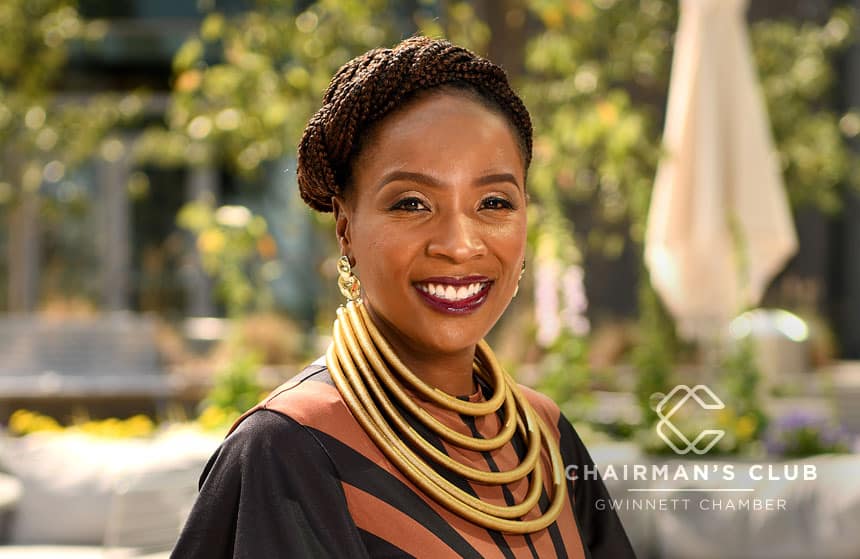“People want to feel heard and valued. They want to feel like they belong,” says Aisha DeBerry, a respected leader in Diversity, Equity, & Inclusion (DE&I) in Gwinnett County and beyond. She explains that creating an inclusive experience for everyone in your company and community is the essence of strategic DE&I. When companies get this right, she says, they realize significant benefits to their organization’s culture and bottom line.
DeBerry leads the DE&I department at Gas South, one of the largest retail natural gas companies in Georgia and the Southeastern United States. She and her team develop DE&I strategies designed to boost the health and productivity of Gas South, and they work with departments across the company to deploy initiatives. “When people see themselves and people who look like them across your organization and in your messaging, they get a sense that you understand them and care about them,” she says.
At Gas South, DeBerry works to infuse DE&I through three main pillars, which she calls the 3 Rs:
Recruitment: These strategies ensure the company’s workforce reflects the entire community it serves. She works closely with her colleagues in charge of recruitment to deploy programs that reach and attract a diverse talent pool. She advises, “Companies should consider where they go to recruit employees. Do you always go to the same colleges or do you expand your reach to find a more diverse group of candidates?”
Representation: DeBerry says it’s essential that your customers and employees feel represented across your organization. Externally, this is expressed through communication that tells an inclusive message and shows images that reflect the diversity of the community. “We want people in our community to see themselves in the stories we tell and sense that we understand them,” explains DeBerry.
Internally, representation means that employees see people who look like them on all levels of the company and see clear growth opportunities. One way Gas South drives representation is through a robust mentorship program. “This program gives individual contributors and even mid-level managers the opportunity to be mentored by a member of our leadership team. This gives employees access to coaching and helps them understand career pathways,” she explains. The fruit of this program, according to DeBerry, is improved productivity and morale.
Retention: High employee retention is key to a company’s bottom line, and DeBerry says that DE&I plays an important role in boosting retention. “We’ve created employee engagement groups where people can build relationships, learn new skills, access information, find resources, and feel more connected,” says DeBerry. She explains that these identity spaces — like the women’s networking circle, black employees support team, young professionals, and more — are open to everyone and designed to give employees a point of connection.
DeBerry will share her insights as moderator of the upcoming DE&I Summit for the Gwinnett Chamber on May 11, 2023, and encourages all business leaders to attend. “This is an excellent opportunity for us to learn and share ideas. We have an incredible panel of experts who all come with a wealth of knowledge,” she says. “I’m also excited about the conversations people will have at their tables. We need to spend more time listening to each other, gaining information, synthesizing it, and preparing to execute for impact.”
“Many of us champion DE&I, but it can be hard to know how to implement it and what the impacts may look like,” she says. “At the summit, we’ll share interactive tools and resources you can put to use to support your DE&I programs.”
For business leaders looking to improve their DE&I, DeBerry also recommends two of her favorite resources: the Harvard Business Review and the National Diversity Council, which regularly share insightful articles and toolkits for businesses.
For those committed to a more inclusive community, DeBerry offers a clear charge: “It’s important for us to be in a constant state of listening and learning. If we’re really committed to this idea of an inclusive workplace, we have to be willing to learn. We have to be ok with making mistakes, we have to be comfortable with asking questions, and we need to be ok with not liking the answers to some of the questions. DE&I professionals cannot do this work alone. This is a community effort.”

